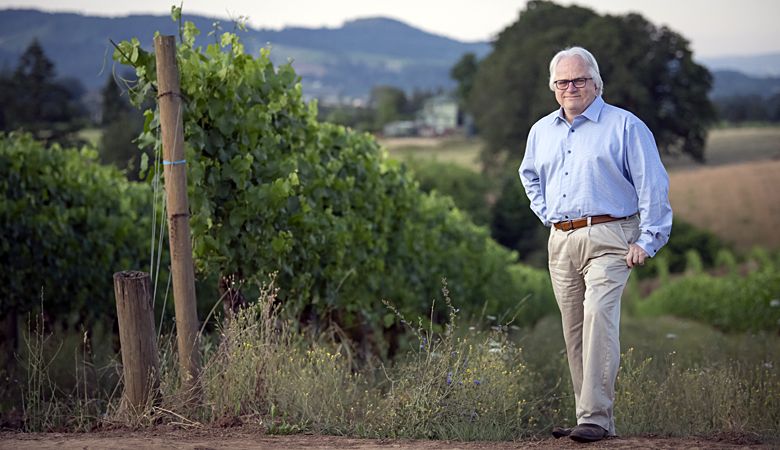WV in the EU
Willamette Valley granted PGI
In mid-July, the Willamette Valley received formal recognition and protection by the European Union (EU) through Protected Geographical Indication (PGI) status approval. This step represents a major breakthrough in global brand awareness and a milestone for the Valley’s many hardworking winegrowers and winemakers.
The PGI system protects iconic names of agricultural products, spirit drinks and wines with a link to their geographical origin, including well-known products such as Champagne and Barolo. Only two American wine regions, Napa Valley and now the Willamette Valley, carry this distinction. This acknowledgment from the EU affirms and protects the Willamette Valley’s reputation for quality. It also offers legal security and added protection in Europe and worldwide against fraudulent wines and outside producers attempting to profit from the Willamette Valley name.
As wine regions develop global recognition for quality, their success often carries with it the threat of tangential producers looking to capitalize on their marketing cachet. This can result in misleading labels and wines that aren’t true to established regional protocols, styles and quality. EU recognition requires a detailed description of the unique location, inputs to processes and resultant qualities of wines to gain PGI status.
This recognition further extends the reach of the Willamette Valley and its wines across the Atlantic, and through the EU’s market channels, both locally and through trading partners worldwide. Outlining the benefits and responsibilities attached to the Valley’s PGI approval, EU Ambassador to the U.S. Stavros Lambrinidis says, “As a registered Protected Geographical Indication, the Willamette Valley name is secured throughout the EU market of 27 countries counting 450 million consumers. Any operator seeking to sell non-originating wine using the registered Oregon name, or using labeling devices to evoke ‘Willamette Valley’ in the mind of the consumer, will be stopped.”
He adds, “For the EU consumer, the PGI is the guarantee of authenticity: that every bottle meets the quality standard set by the Willamette producers.”
Geographical Indications (GIs) represent the foundation of EU quality wines and spirits and of agricultural products and foodstuffs. Lambrinidis noted how producers of GIs attract higher prices and secure rights against counterfeits. And while GIs are a worldwide phenomenon, notably in Asia and Latin America, “It is still the EU certification that gives producers like Willamette their calling-card to key markets.”
The Willamette Valley Wineries Association (WVWA) and other statewide organizations, with leadership from Harry Peterson-Nedry, have been advocating for wine region name protection for almost two decades.
Peterson-Nedry, founder of RR and Ridgecrest wineries, started pushing for the protection of wine region names in 2002. “I felt labeling and place name protection were principled tenets of what Oregon has always been and should be,” he explains. “It offered recognition for the pioneers’ priorities and principles, and for the ongoing desire to do the right thing for consumers. The reality is that some wine producers could unfairly appropriate the hard, historical work put in by others, by using their wine region names and cheating long-term both the wine industry and consumers.”
Major strides were made in 2006 international wine trade negotiations to limit this activity, but more work is needed to ensure wine regions have the tools to protect themselves in a globalizing market. Recent use of wine in erecting trade barriers for other industries’ goods has raised again the need for addressing wine trade issues.
“Covering each other’s back, as this PGI protection does, is a step in the right direction,” Peterson-Nedry continues. The WVWA, in its mission to promote, preserve and advance the prestige of Oregon’s Willamette Valley AVA (American Viticultural Area) and its wines, has worked to defend its appellation and nested AVAs from companies seeking to mis-designate appellation names for wines not produced using grapes grown in the Willamette Valley.
The EU recognized the Napa Valley’s GI status in 2007, two years after the California region was a signatory — with Oregon and six other global wine regions — to the Declaration to Protect Wine Place & Origin. The group of signatories has been growing in size since 2005. Now named the Wine Origins Alliance, the organization represents regions spanning 11 countries, working to protect regional names and eliminate all barriers to trade in wine.
WVWA and Peterson-Nedry worked closely with the Wine Origins Alliance to achieve this latest regional milestone for the Willamette Valley. “The global wine industry is built on distinct regional names such as Willamette Valley, and this decision is an acknowledgment that location truly does matter when it comes to wine,” says Jennifer Hall, director of the Wine Origins Alliance. “Consumers around the world deserve truthful and accurate wine labels, and this is a major step forward for not only Willamette Valley but the whole wine industry in ensuring consumers are not misled.”












